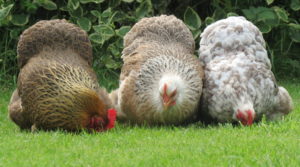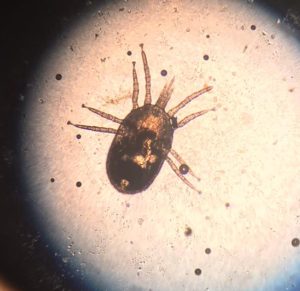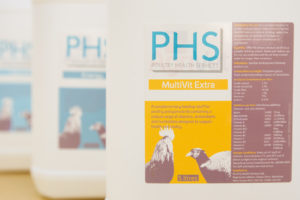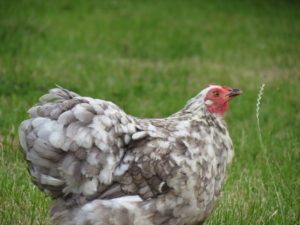Preventative healthcare is important to incorporate into the care of any flock no matter how big or small. It can help prevent common ailments and keep your birds happy and healthy for the long term.

Worming
It is best practice to perform a faecal egg count occasionally to assess the level of worms in your flock – every three months is sufficient.
Treatment for worms is usually with Flubenvet 1% premix that is sprinkled on feed, or there are some water treatments available.
For more information see intestinal worms.
Red mite
Monitor for red mite every time you go in a coop. They can be found under perching, in cracks in the walls, under feeders and drinkers and in any tight area.
Some people create traps to check for its presence. This can be as simple as a bundle of plastic straws taped together under the perch near the ends. As it is an enclosed space, the red mite will try and sleep there during the day so you can peak into the straws and see them easily.
For more information see Red Mite (Mites and lice).


Multivitamin supplementation
Should your birds have poor egg quality or be stressed for any reason such as just starting to lay, predator presence, extreme weather variation, heat stress or be suffering from illness then giving them supplementation to help them through this period would be beneficial.
Multivitamin solutions are simply added to the water and can help support their intestinal wellbeing and immune system. Using these types of products for three to five days as and when they are required allows for maximum effectiveness.
Visit our online shop for more information on our supplements.
Chicken first aid
Chickens can often get themselves into sticky situations due to their inquisitive natures.
If a cut or injury isn’t warranting a trip to the vets then ensure that it is cleaned out thoroughly with some diluted hibiscrub and then allowed to dry.
Spraying the cut with products such as Aluspray will provide both a physical barrier to prevent infection and colour the skin silver so birds are not pecked by their fellow flock mates. Nothing is more attractive to a chicken than a brightly coloured glistening (usually red) object to investigate. Do not use antibiotic-based sprays (eg. Terramycin) as these will usually require an egg withhold due the risk of residue contamination. Coloured purple/iodine sprays may attract pecking from flock mates, so are not ideal.

Feather pecking management
If you find yourself in the unfortunate position of owning a flock that likes to bully each other, and see a lot of birds with red, featherless backends or heads, then this must be addressed swiftly. Pecking can quickly become a habit if not curbed when it is first identified.
Cover up any pecking injuries with a product such as Aluspray.
Identify the reason why they are pecking, this is usually because they are frustrated about something.
Some examples include:
-
- Introducing new birds; a pecking order must be established. Always introduce at least two birds to a flock to prevent the targeting of one bird.
- Not being let out in a regular routine; one day letting them out at 8am and the next at 10am gives them two hours wondering why they are trapped in the coop when they should be out!
- Lack of mental stimulation – this can be easily addressed by providing access to dust baths, scratch areas and pecking objects (like balls, toys etc.). Remember any toys added to the environment must be rotated every other week to keep them new and exciting.